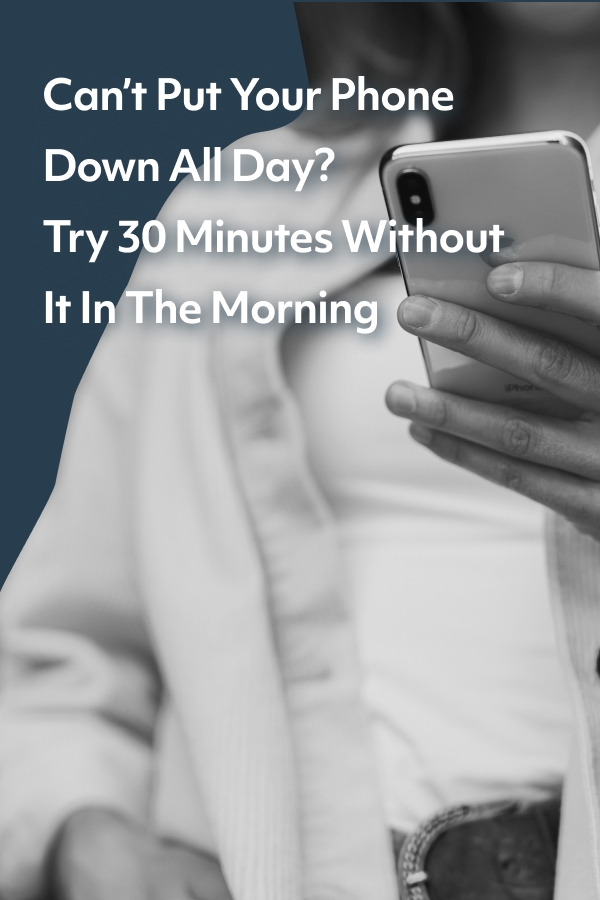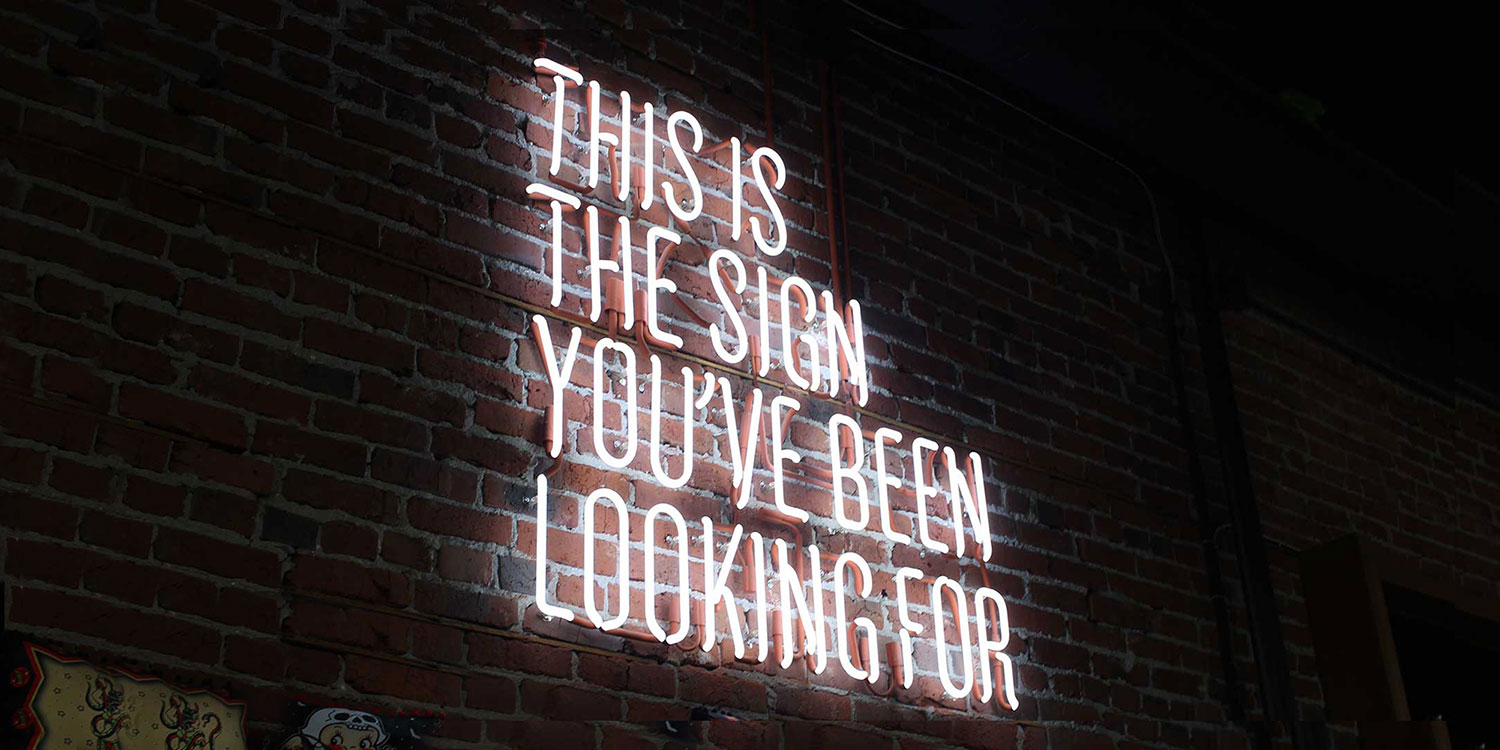Can’t put your phone down all day? Try 30 minutes without it in the morning to reset your phone addiction.
The pandemic exacerbated my phone addiction to the point that I began watching thrillers and then horror movies for the first time in my life … because they were the only thing that could capture my attention enough to get me to put my phone down for a moment.
Realizing my phone use is a problem for me
When I step back and observe my phone behavior, it doesn’t even make me feel good during the times when it is addictive. It’s a compulsion that feels somewhat like gambling—every time I look, I am hoping for some email or notification that is going to change my life. When I look and find nothing that sparks any dopamine, I feel worse. This is a classic case of intermittent reinforcement working on my brain.
I grew up without cell phones, and the idea of spending my life staring into my phone terrifies me. I regularly have to remind myself that my phone will be here in ten years but my dog won’t.
Since March of 2020, I’ve been on a journey to find the right practice that will limit my phone use. Too much phone makes me feel bad about myself in so many different ways. The ‘compare and despair’ aspect of viewing the highlights of other people’s lives is much talked about, but for me, the time wasting aspect hurts the most. Of course that time wasting is directly linked to the ‘comparing and despairing.’ When a day flies by and I’ve barely gotten any of my tasks accomplished because I have been lost in my phone, I lose faith in my ability to create the life I want.
Strategies for using my phone less that worked … for a while
All the methods of breaking my phone addiction that I have tried worked, but not all of them are sustainable as a regular practice for me. During 2020, I did a series on dopamine detoxing, which was great. When I ended the series, I was convinced I was going to do that all the time. I have done it just a few times. There was the time I rented an Airstream in Ojai, turned my phone off for three days, and finished a writing project. That was fantastic. I’ll do it again. Some day.
There was the period that I wouldn’t turn my phone on in the morning until I had completed certain tasks—journaling, meditation, walking the dog, writing 1000 words of my current writing project out by hand. That was amazing, while it lasted. Then I started going to a morning meeting that a friend also went to and wanted to text with him during it. Also I finished the writing project. There goes that motivation.
The next thing I tried was not using my phone in the first two hours of the day. This is more flexible, and I was able to do it some of the time. If I looked at my phone once during that time, I would just kind of give up for that day, but every day I resolved to do it better tomorrow.
But then I found a podcast where a British woman reads you bedtime stories, and my phone was next to my bed again. When I woke up, it was way too hard to resist the phone right next to me. I eventually figured out that I could take social media, email, and messaging off my iPad and put that next to my bed instead. The two hours part was still unsustainable.
The strategy that is making a real difference in my phone addiction
I thought a solution needed to be dramatic to work. But what I really need is something that I can—and will—actually do on a regular basis. So I started taking just the first 30 minutes of the day off from my phone. I found that this time grounds me in reality, in my body and surroundings in a way I remember from being young. Just those 30 minutes were enough. Actually, it was more than enough, because I could show up for it regularly. Every time I create a plan for myself and don’t show up for it, it’s a tiny act of self-abandonment that hooks into a lifetime of that trauma.
I got even more generous with myself one morning when I absentmindedly grabbed my phone, got caught up in the whirlwind of everyone else’s agenda, and jumped into my tasks for the day without a plan or having done any of the things that keep me centered throughout the day—meditation, journaling, my daily gratitude list. Instead of giving up on my 30 phoneless minutes that day, I realized that I could just start the morning over. Restarting the day is a thing I’d heard of before in recovery but never thought about in this sense. Now, if I wake up and rush into the stream of online life without thinking, I can just take those thirty minutes the moment I do think.
The goal is so small and achievable that I can easily exceed my expectations rather than fall short, which feels so much better. I will put my phone on airplane mode throughout the day—when I need to focus or when I just need a moment to re-center into physical reality.
Why 30 minute phone breaks work for me
The beauty of the 30 minute phone break is that it accomplishes exactly the same thing as the other, more dramatic breaks I’ve tried (three day detox, all day in an Airstream, two hours in the morning). It breaks the hold my phone has on me for the entire day. By refocusing my brain into my external world and my own thoughts, the phone world and what it wants to tell me feel less important.
Constant phone checking begets more and more checking and diminishing dopamine returns. But taking small breaks begets more breaks. When I take those 30 minutes, I no longer feel like my phone is calling me the way I was once called by a liquor store or a bag of cocaine that was still not empty at 7 am.
Taking small breaks from the phone works to reset my relationship with it the way that people who try Dry January seek to reset their relationship with alcohol. I just have to keep doing it regularly, and to remind myself that it’s okay when I forget or fail—I can always start now.









